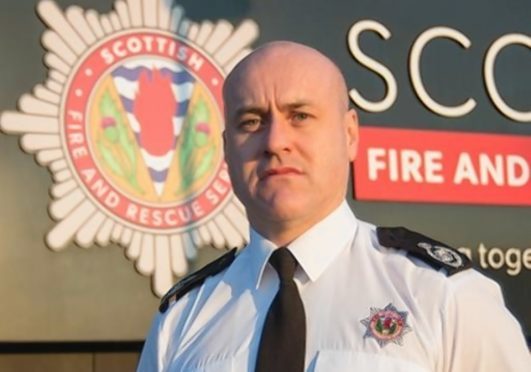One of the Scottish fire service’s most senior officers has insisted that safety has not been compromised by the controversial centralisation of north control rooms to Tayside.
Facilities in Inverness and Aberdeen were switched to Dundee late last year, amid fears the service would suffer through a loss of local knowledge and geography.
But Scottish Fire and Rescue’s director of response and resilience Lewis Ramsay yesterday told how the new-look Dundee control now had the “most relevant and up-to-date set of records” and that the database had strengthened the service.
Mr Ramsay also voiced his concerns that criticisms and allegations of mistakes caused by a lack of local knowledge had damaged staff morale – although he acknowledged there had been “anomalies” since the service switch.
He said: “What’s very important is those local crews – the firefighters we’re deploying – that’s where we derive our local knowledge. They’re the boots on the ground, not someone in a control room in Inverness, Aberdeen or Glasgow.
“I’m looking at 11 claims. There’s a couple where we could have done better but at no point did we fail to mobilise and fail to mobilise timeously.
“To put this in perspective, we’ve handled over 4,000 calls (since the move) – just over 2,600 relevant to the former Highlands and Islands.
“We inherited over 60,000 entries – known addresses – within the (computerised) gazetteer. In a couple of months we’ve increased that to over 212,000. We’ve got the most up to date and relevant set of records.”
In November, Aberdeen’s emergency calls switched to Dundee. The Inverness facility followed suit a month later.
There was concern about a claimed loss of local knowledge, with only three of the 19 Inverness control room staff making the switch to the 42-staff Dundee control room.
Since the switch, the Press and Journal reported former Highland firefighter Alex Kidd’s allegations that there have been several instances of mistakes or confusion over the geography of the Highlands in the pressurised environment of the control room.
Assistant chief officer Ramsay, with the fire service for almost 30 years, carried out extensive inquiries into the complaints.
He added: “Some of the things I’ve seen on social media, encouraging people to carry stories of failures directly toward a complainant is irresponsible.
“I’ve also read some things (online) the language of which is hugely insulting and I will not accept that.
“We need to bring this to a conclusion, with crews raising their anxieties through their line managers rather than a former employee.”
But Mr Kidd last night repeated his warning that lives were at greater risk.
Mr Kidd, who retired in 2008 after 32 years’ service, said: “Generations of local knowledge have been lost by getting rid of the control room in Inverness.
“The argument that we’re getting most of it right isn’t good enough. One mistake will cost somebody their life.”
Shetland Liberal Democrat MSP Tavish Scott echoed the concern along with Highlands and Islands Conservative MSP Ed Mountain who both want regional control centres restored.
The Scottish Government insists there has been no loss of local knowledge.
“The professional knowledge of control room staff is supported by sophisticated systems alongside the knowledge of locally based crews,” said a spokesman.
“The move to three control rooms, agreed with the union, means each service now has connections to every fire station in Scotland with modern IT systems that enable the nearest unit to be dispatched, regardless of where it’s based. Fire reform also received cross party support.”
